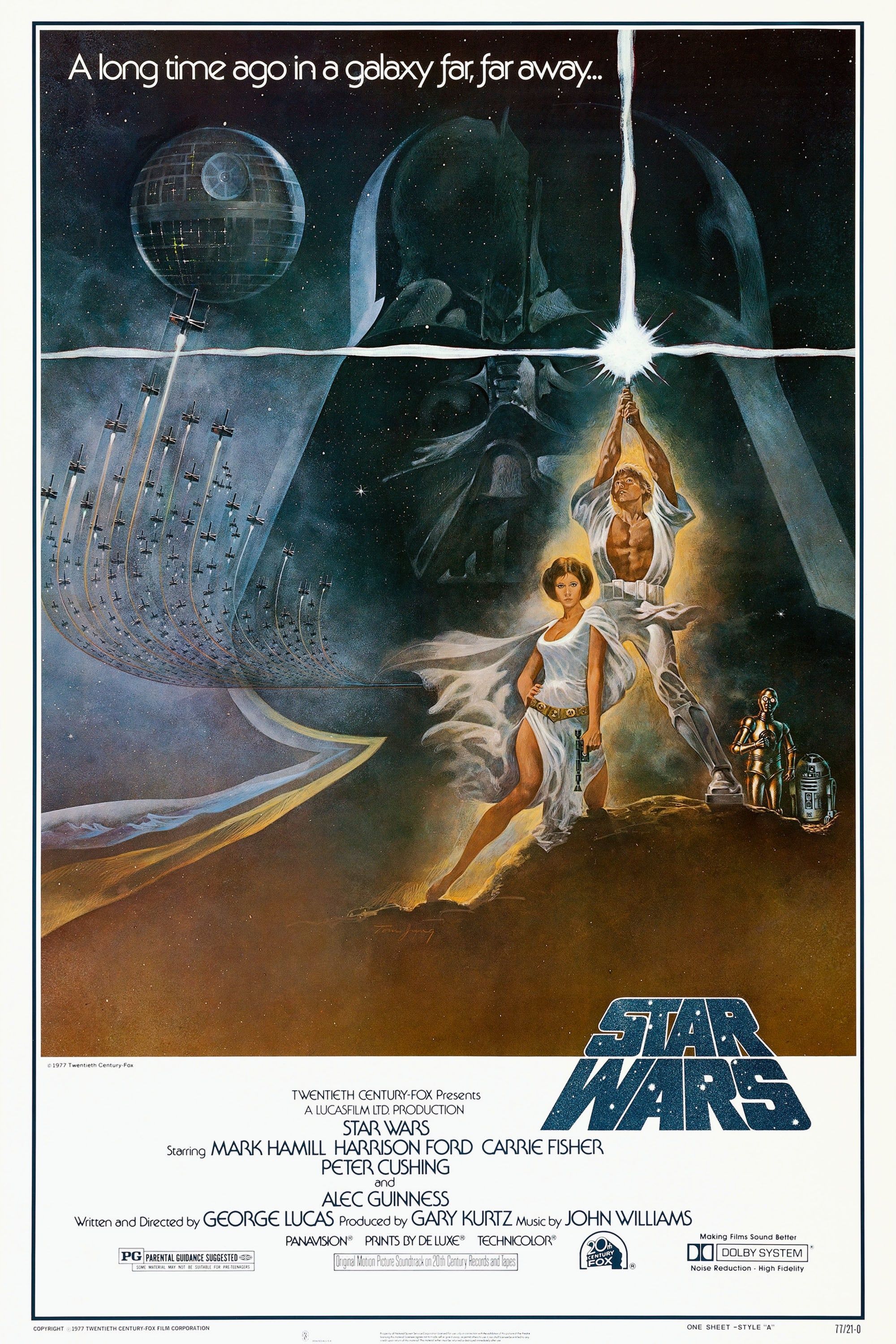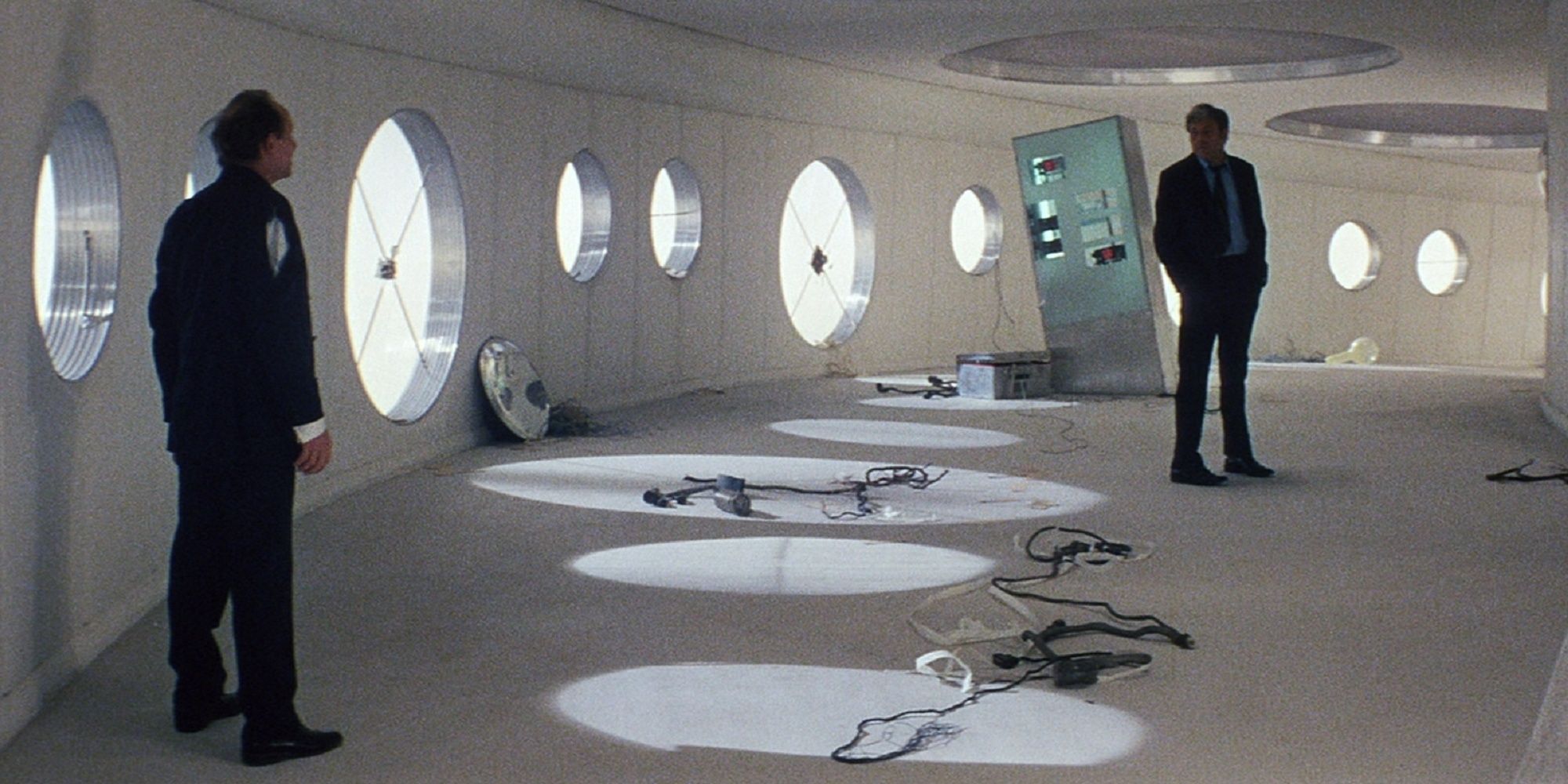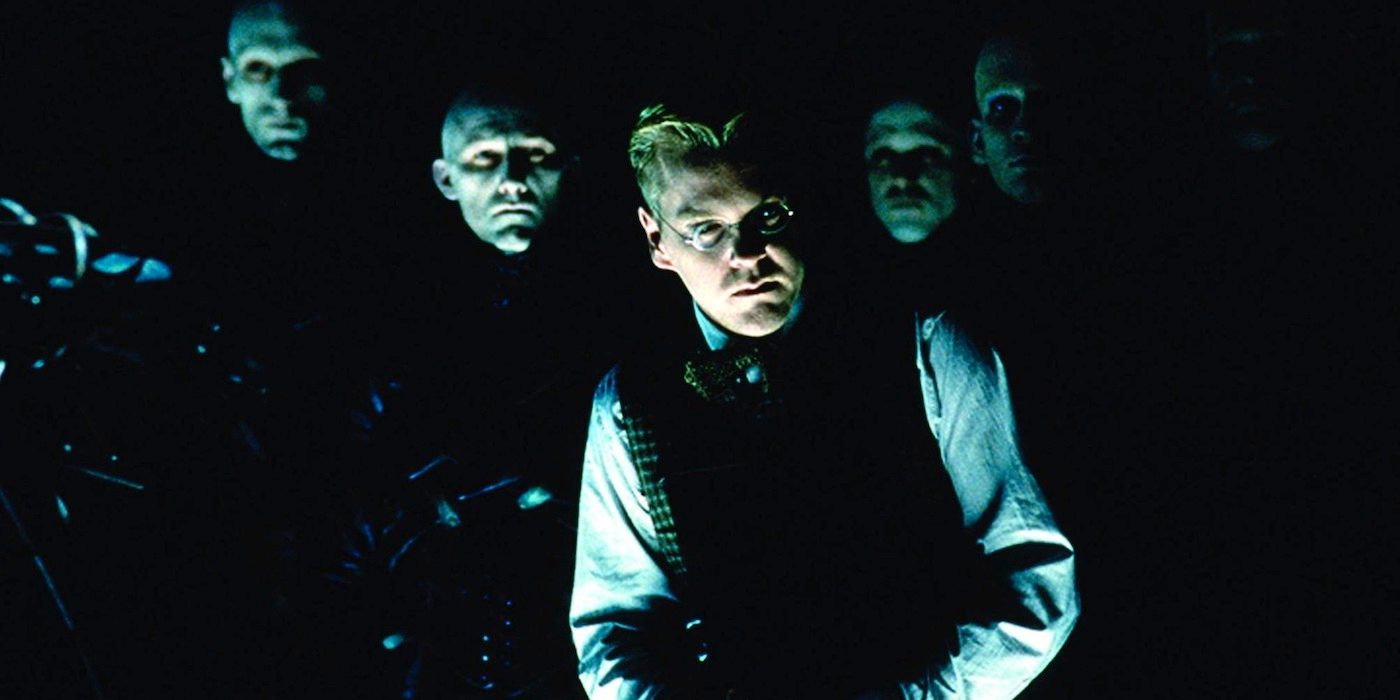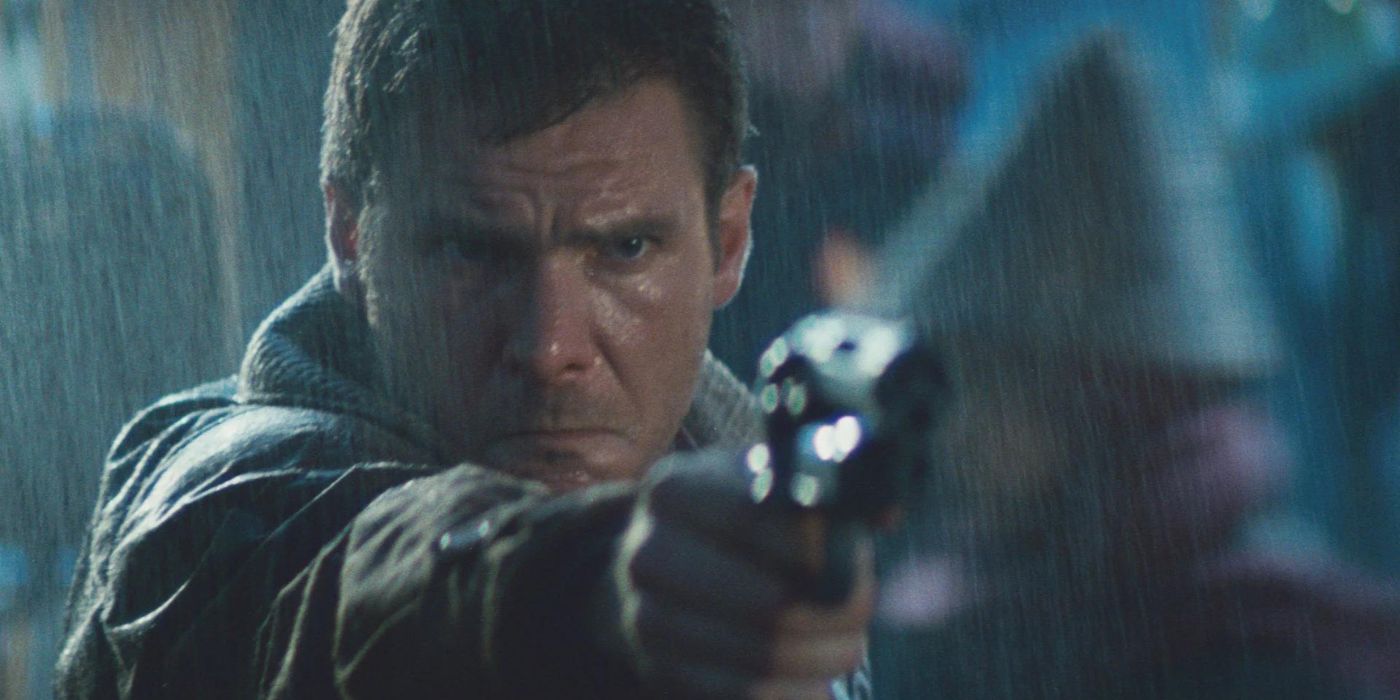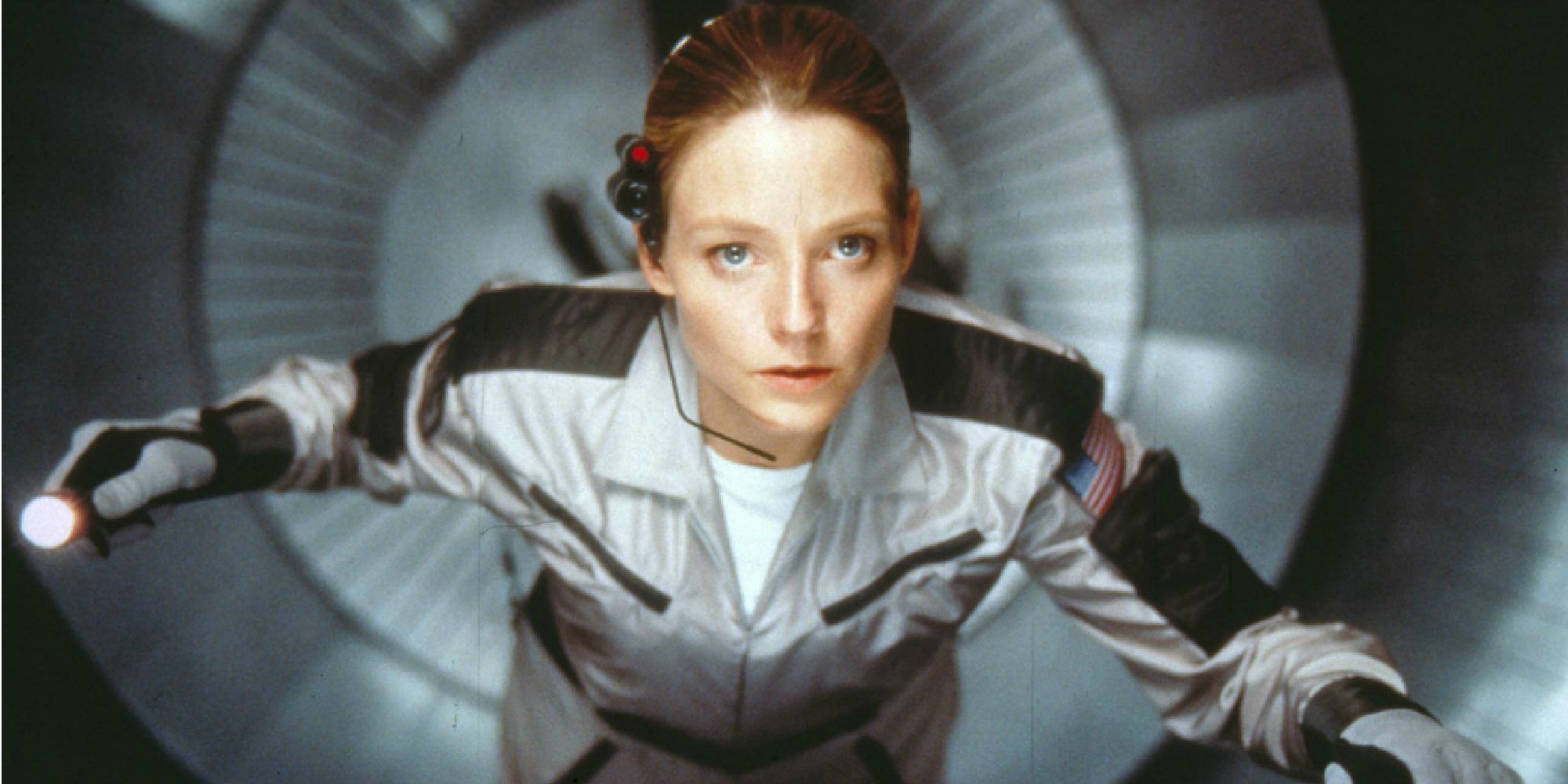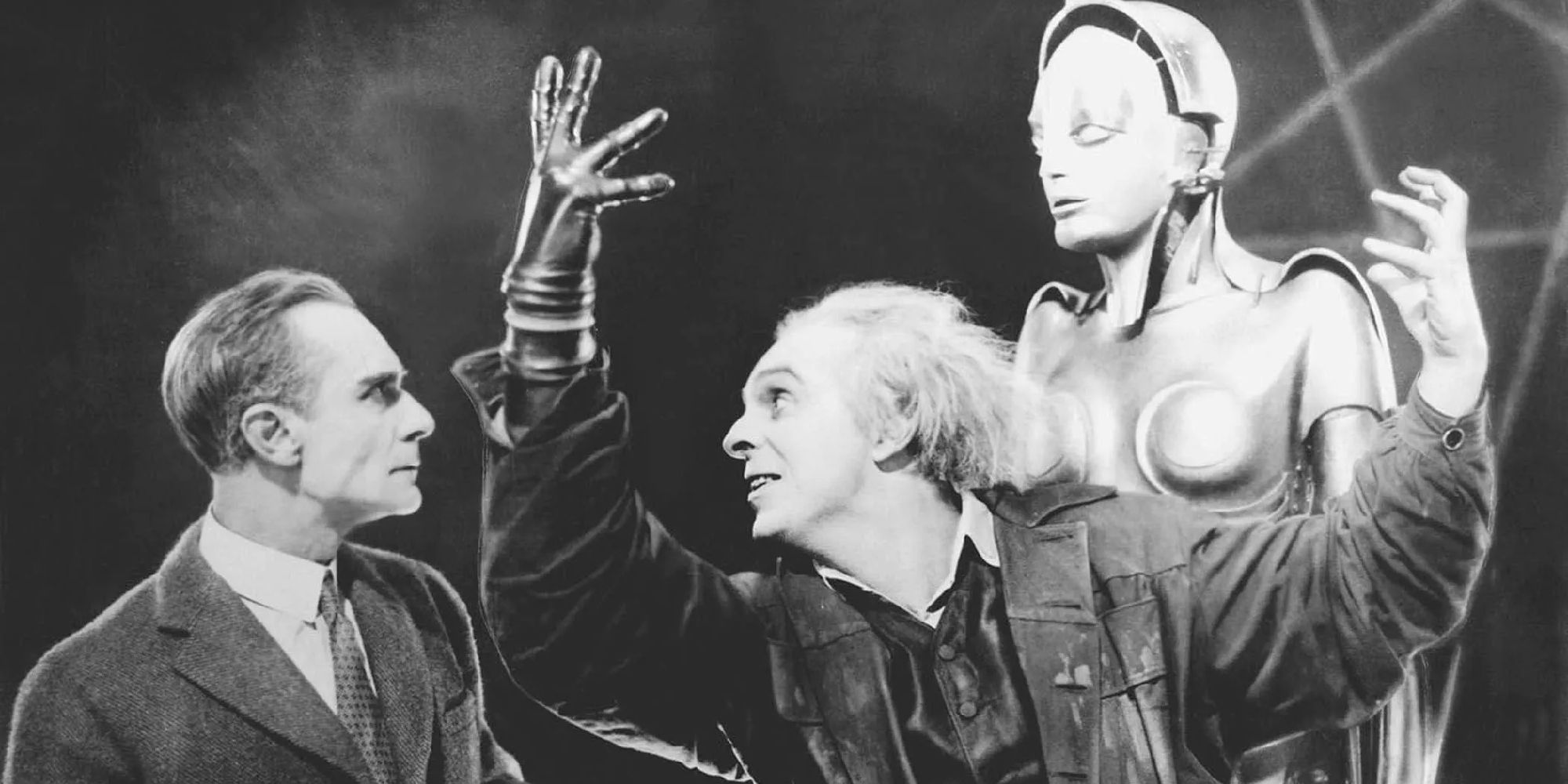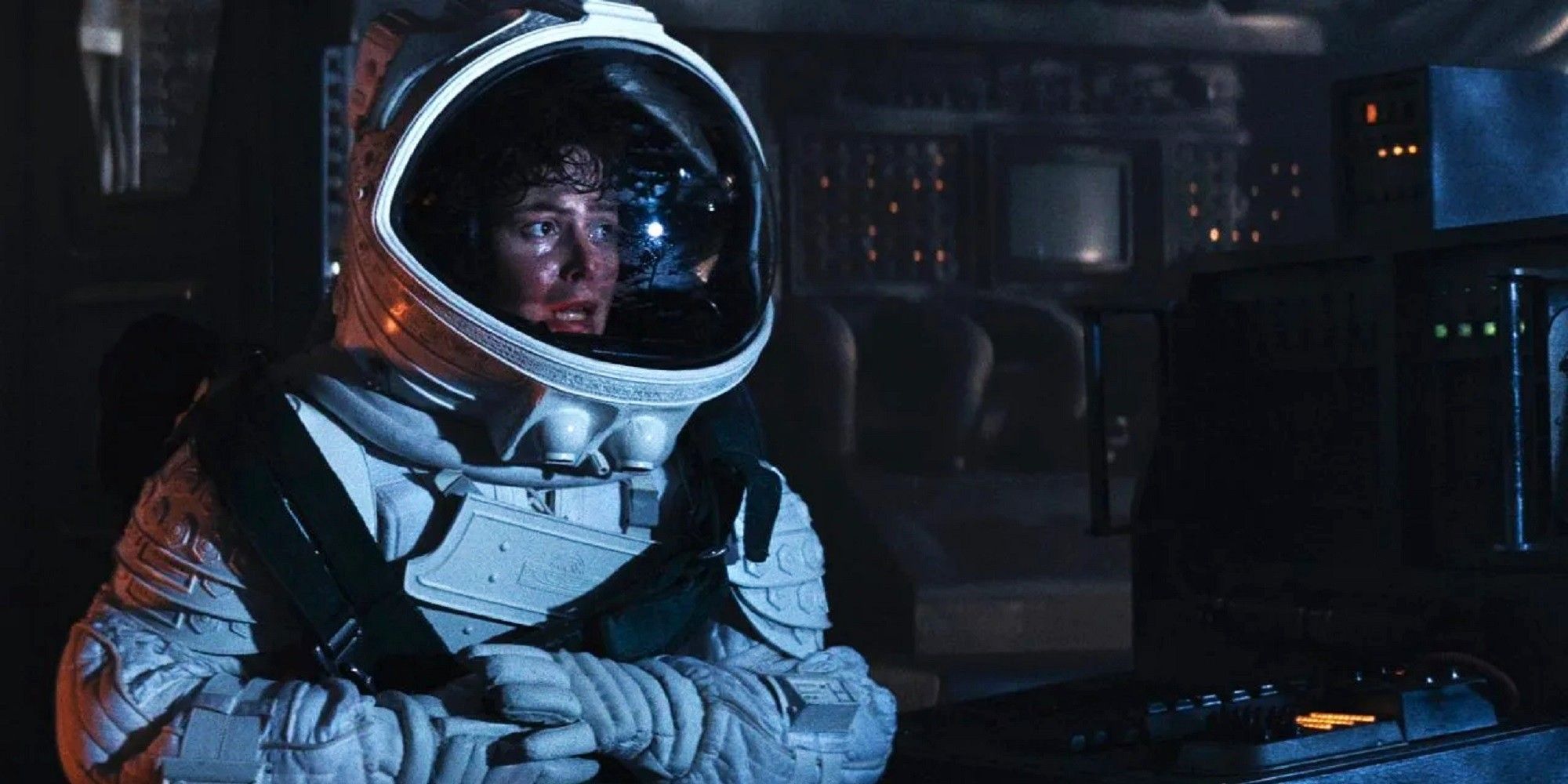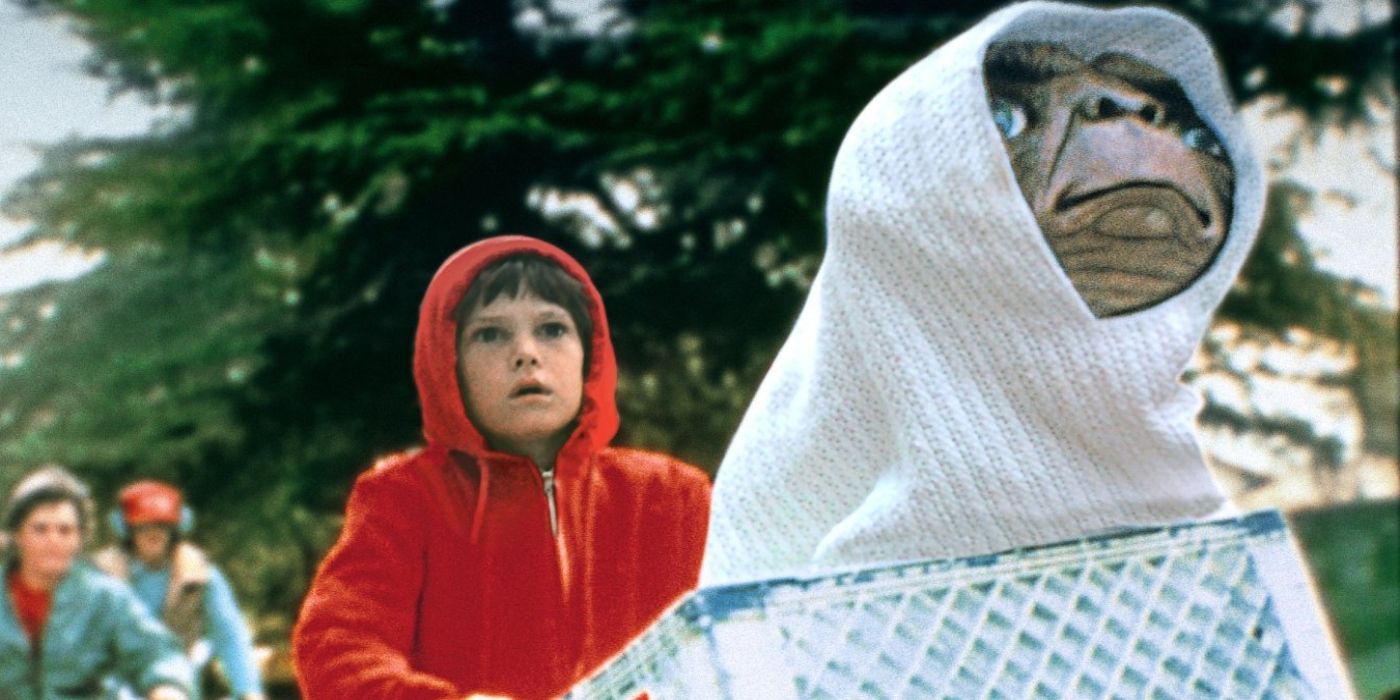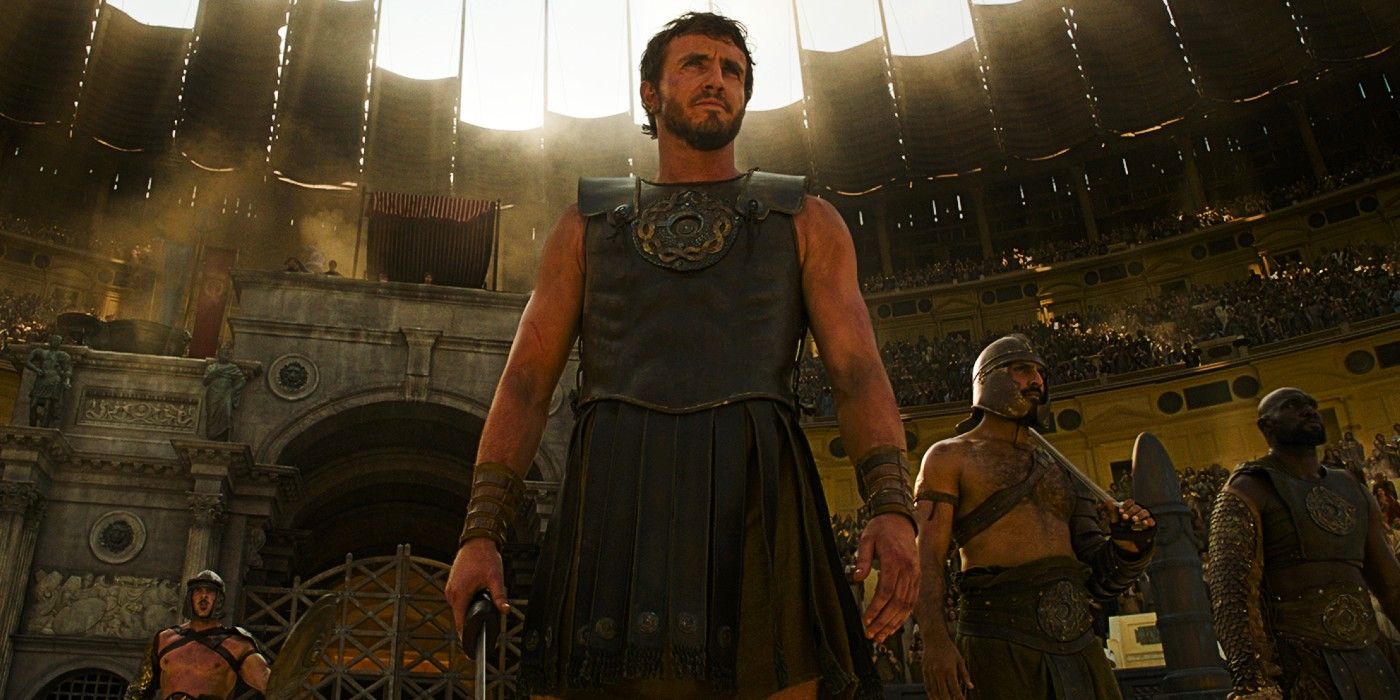10 Best Sci-Fi Movies of All Time, According to Roger Ebert
The science-fiction genre is more than human versus alien conflicts. For the esteemed film critic Roger Ebert, the best science fiction movies explore the relationship between nature and science while peppering in imaginative elements like space, dystopia, and extraterrestrial beings. In addition to storytelling, these movies achieve an expert level of technical execution as filmmakers are tasked with world-building not only in the script, but onscreen with elaborate sets, special effects, and sound design. Many of Ebert’s choices for the best of the genre include Oscar winners, groundbreaking franchises, and eclectic cinematic feats.
In compiling what he believed to be the greatest movies the sci-fi genre had to offer, Ebert included many of these titles in his Great Movies Collection in addition to his original ratings. For some films, Ebert needed a second screening to truly appreciate the craftsmanship of the film, and in some cases, a little help from loved ones to truly realize the film’s vision.
10 ‘Star Wars: Episode IV – A New Hope’ (1977)
Directed by George Lucas
Ebert’s four-star review of the first film in what would become one of the biggest franchises in cinema history called watching Star Wars “an out-of-body experience” ranked among movies like Jaws and Taxi Driver. The space opera drops audiences in the middle of a rebellion as Luke Skywalker (Mark Hamill) joins the Jedi Obi-Wan Kenobi (Alec Guinness) in his mission to rescue Princess Leia (Carrie Fisher) from Darth Vader (voiced by James Earl Jones). They’re joined by a pair of droids, a rough-around-the-edges pilot, and his Wookiee copilot. The appeal of this sci-fi, fantasy epic is the entertaining special effects and the endearing development of its crew of characters (human and otherwise).
“‘Star Wars’ taps the pulp fantasies buried in our memories, and because it’s done so brilliantly, it reactivates old thrills, fears, and exhilarations we thought we’d abandoned when we read our last copy of Amazing Stories.”
Ebert calls out the fun Star Wars has in depicting aliens, spaceships, and the battles between good and evil, something far different from other iconic sci-fi films. It’s important to note Ebert gave all three movies in Lucas’ initial trilogy his highest rating of four stars. Each of the franchise installments that Ebert was alive to review earned at least three-and-a-half stars, with the exception of Episode II: Attack of the Clones (two-stars) and the animated film Star Wars: The Clone Wars (one and a half stars).
9 ‘Eternal Sunshine of the Spotless Mind’ (2004)
Directed by Michel Gondry
This sci-fi romance is the ultimate breakup movie that earned three-and-a-half stars from Ebert. Eternal Sunshine of a Spotless Mind features Joel (Jim Carrey) and Clementine (Kate Winslet) following a tumultuous relationship as they each undergo a medical procedure that erases memories of each other and their relationship; however, halfway through his procedure, Joel realizes he’d rather keep his memories, and explores their relationship’s past, present, and future. Ebert called it “a movie that sometimes feels like an endless series of aborted Meet Cutes.”
“The movie is a radical example of Maze Cinema, that style in which the story coils back upon itself, redefining everything and then throwing it up in the air and redefining it again. To reconstruct it in chronological order would be cheating…”
Ebert praised Carrey and Winslet’s performances as the pair counterbalanced each other, giving audiences an emotional installment in the science fiction genre. Eternal Sunshine‘s “deliberately disorienting hoops” create a narrative where both the characters and audiences question time and reality while remaining faithful to the core message of the human need for love and the lengths one goes to find and keep it.
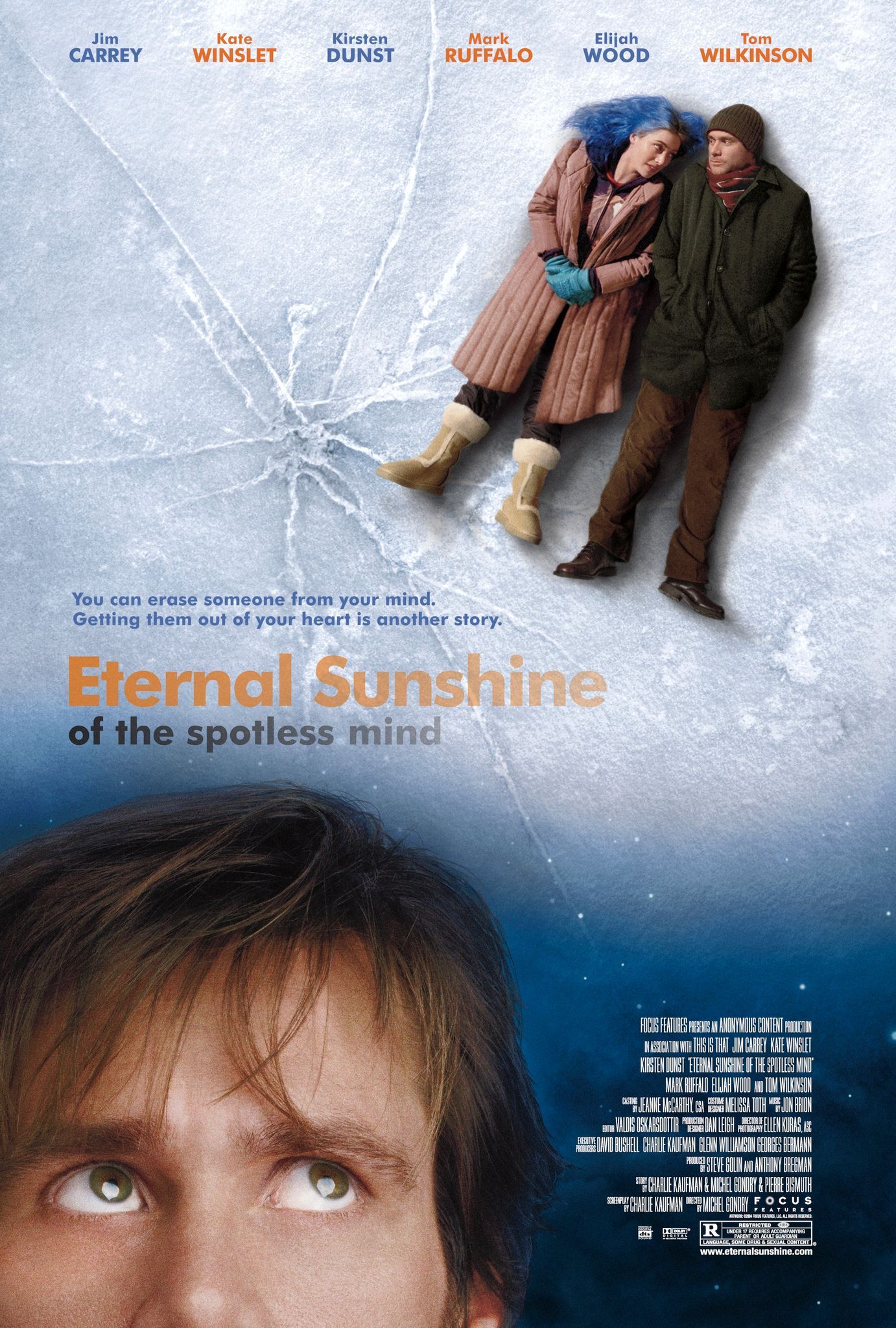
- Release Date
- March 19, 2004
8 ‘Solaris’ (1972)
Directed by Andrei Tarkovsky
Ebert describes Andre Tarkovsky‘s works as a meditative experience that allows audiences the choice to reflectively process their in-depth and lengthy viewing experience or to be bored and walk away missing the point. In his initial viewing of the influential film, Solaris, Ebert swayed from the bored and inattentive to the enthralling curiosity. He describes this experience in his four-star review of the 1972 film depicting a psychologist, Kelvin (Donatas Banionis), assessing the remaining and disturbed crew of a Russian space station after the mysterious deaths onboard occurred while orbiting a distant planet called Solaris.
“No director makes greater demands on our patience. Yet his admirers are passionate and they have reason for their feelings: Tarkovsky consciously tried to create art that was great and deep. He held to a romantic view of the individual able to transform reality through his own spiritual and philosophical strength.”
Solaris explores the implications of loving someone of the idea of them and where reality and consciousness intersect those notions. This is depicted through Kelvin’s relationship with Khari (Natalya Bondarchuk), a being of Solaris called Guests who can replicate anyone in exactness minus memories, and in this case, Kelvin’s late wife. The cerebral experience of this sci-fi feat is what earned it a spot in Ebert’s Great Movies Collection.
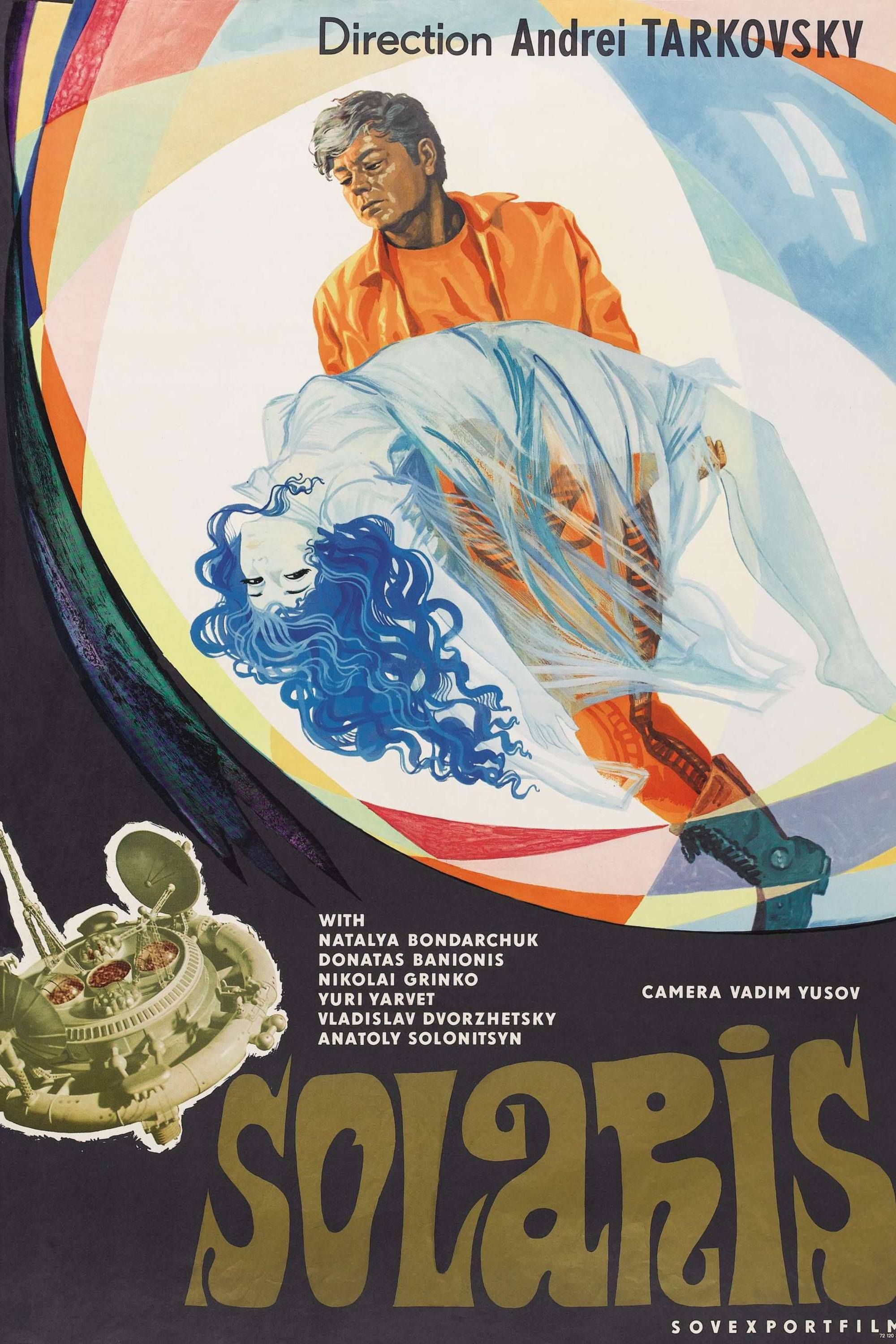
Solaris
- Release Date
- September 26, 1972
- Director
- Andrei Tarkovsky
- Cast
- Natalya Bondarchuk , Donatas Banionis , Jüri Järvet , Vladislav Dvorzhetskiy
7 ‘Dark City’ (1998)
Directed by Alex Proyas
This is the film Ebert consistently references in many of his other reviews concerning the greatest sci-fi movies of all time. Dark City is the thrilling story of John Murdoch (Rufus Sewell) who has no memory of his past and can’t remember if he committed the brutal murders he’s wanted for. As he unravels the mystery of his identity, he discovers an underworld of ominous beings from another planet called the Strangers. Ebert called watching the film more than just an experience, but a “triumph of art direction, set design, cinematography, special effects–and imagination.”
“The movie is a glorious marriage of existential dread and slam-bang action…This film contains ideas and true poignance, a story that has been thought out and has surprises right to the end. It’s romantic and exhilarating.”
The cinematography of Dark City is equal parts noir as it meshes science fiction in “capture[ing] the kinetic energy of great comic books,” while drawing inspiration from films like M and The Cabinet of Dr. Caligari. Ebert praised the movie with four stars as it combined murder mystery crime, dream logic reality, and sci-fi creatures against the backdrop of a futuristic city with stunning visuals.
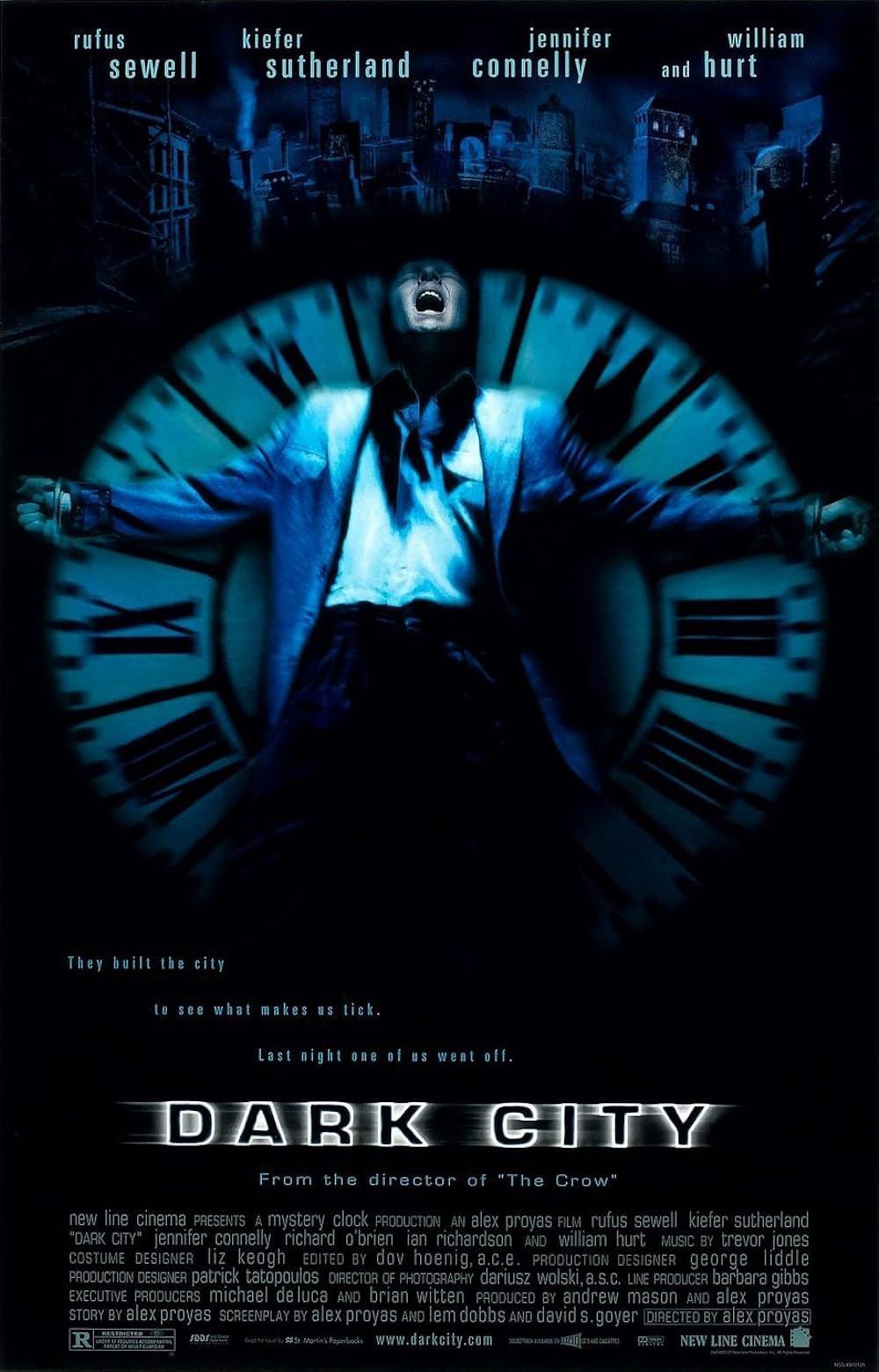
Dark City
- Release Date
- February 27, 1998
6 ‘Blade Runner’ (1982)
Directed by Ridley Scott
Originally earning only three stars in Ebert’s first review in 1982, Blade Runner ultimately earned a four-star rating and was inducted into Ebert’s Great Movie Collection. In what became an iconic, genre-defining film, Harrison Ford stars as Rick Deckard, a cop in a futuristic Los Angeles whose job is to track down and eliminate artificial intelligence beings called replicants posing as humans. Ebert’s original review praised the masterful special effects expected in a sci-fi film, but believed they overwhelmed what was already a thin premise, calling it “a stunningly interesting visual achievement, but a failure as a story.”
“Scott has resisted the temptation to go back and replace analog special effects with new GCI work…and has kept Douglas Turnbull’s virtuoso original special effects, while enhancing, restoring, cleaning and scrubbing both visuals and sound so the film reflects a higher technical standard than ever before. It looks so great, you’re tempted to say the hell with the story, let’s just watch it.”
After watching Ridley Scott‘s Blade Runner: The Final Cut in 2007, Ebert changed his tune after the original special effects were preserved, in addition to removing Ford’s voiceover that took away the film’s enigma draw: “Since much of the interest in the film has been generated by what we weren’t sure we understood, that turned out to be no problem.” The critic marveled at Blade Runner‘s ability then and re-released to utilize the magician’s redirection tactic of what it means to be a replicant and what it means to be a human.
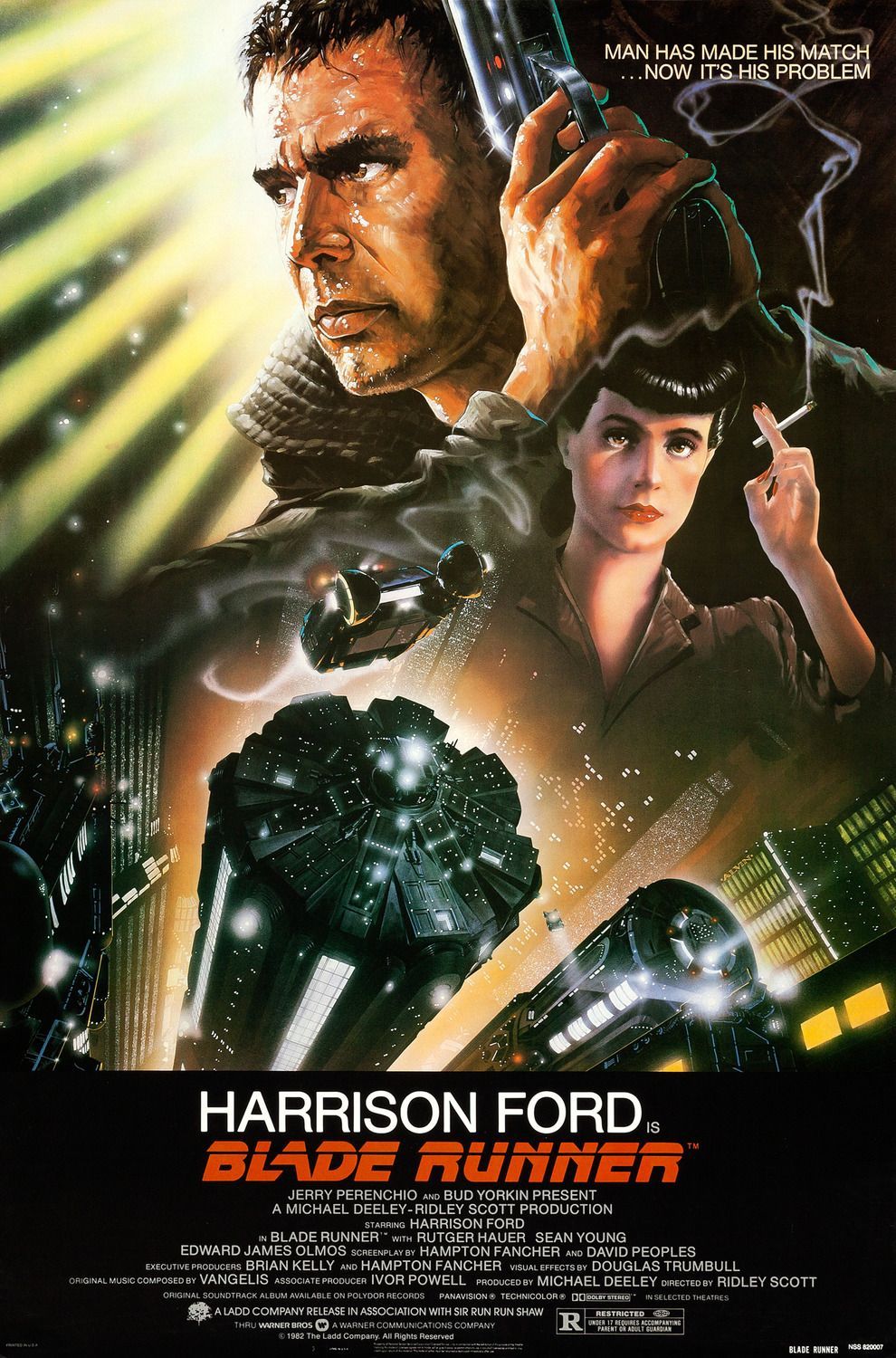
- Release Date
- June 25, 1982
- Main Genre
- Sci-Fi
Directed by Robert Zemeckis
Ebert called this film adaptation of Carl Sagan‘s sci-fi novel of the same name “the smartest and most absorbing story about extraterrestrial intelligence.” Contact stars Jodie Foster as radio astronomer Dr. Ellie Arroway is racing to decode the first conclusive radio proof of extraterrestrial intelligence and the received image of the schematics for a space machine that would allow someone from the human race to return to where the signal was first sent from. Ebert granted the film three-and-a-half stars for Contact‘s common sense approach to depicting the vastness of the universe in relationship to an alien’s approach to contacting other intelligent life. The movie is less concerned about aliens versus humans, rather the dissection of knowledge and existence.
“It’s surprising to find a science fiction film exploring issues like love, death and the existence of God; science fiction as a literary form has of course explored those subjects for years, but sci-fi movies generally tend toward titles such as ‘Independence Day,’ and are about actors being attacked by gooey special effects.”
What additionally delighted Ebert about this sci-fi adaptation was its willingness to let Foster’s Arroway and Matthew McConaughey‘s Palmer Joss debate the existence of God and extraterrestrial life, a topic Ebert believed Hollywood shied away from scripting opposing conversations onscreen. Contact refuses to shy away from existentialism and theology, allowing viewers (and Ebert) to contemplate the vastness of the universe, intelligence, and time.
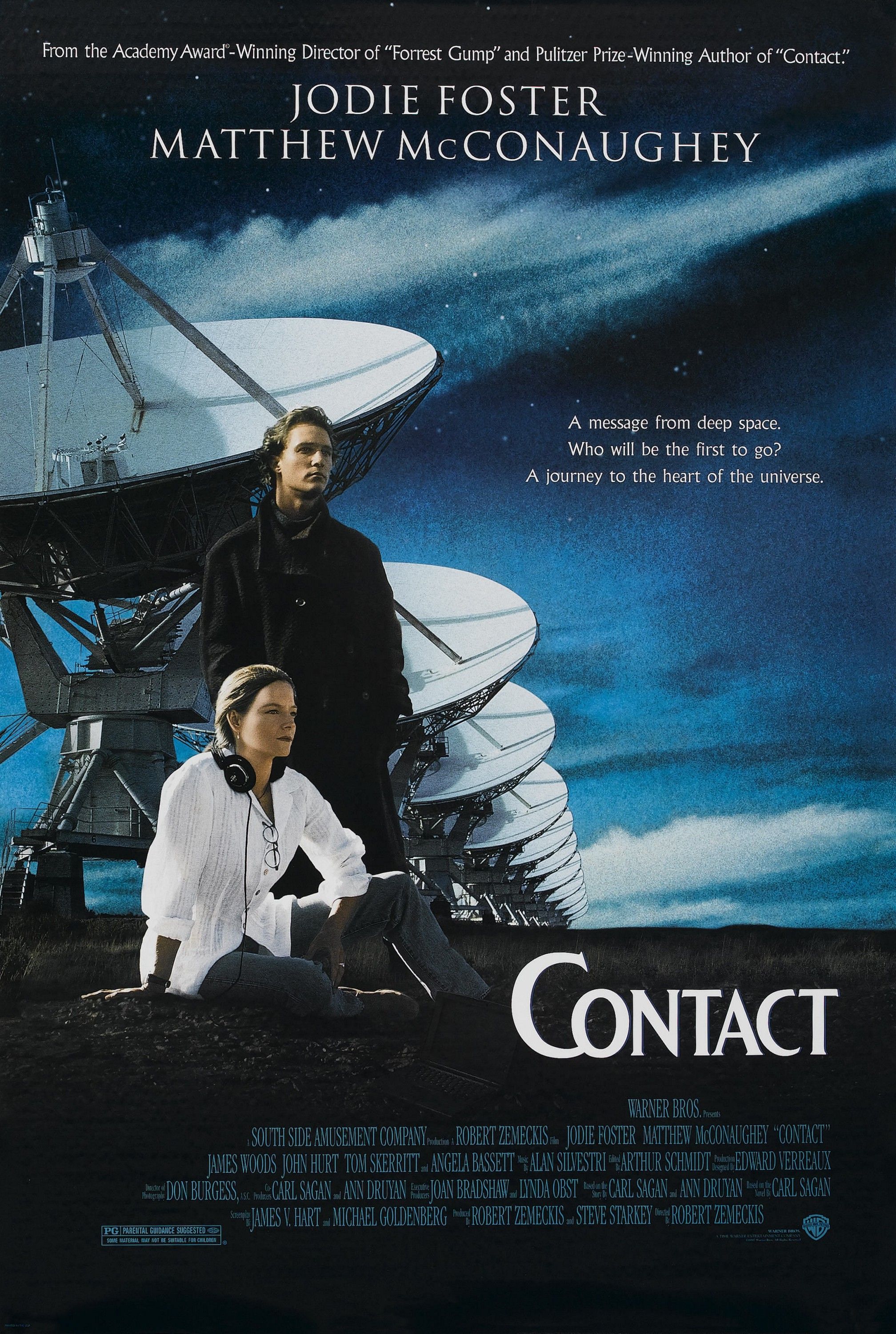
Contact
- Release Date
- July 11, 1997
4 ‘Metropolis’ (1927)
Directed by Fritz Lang
In his four-star review of the classic expressionist silent film, Ebert described Metropolis as “hallucinatory—a nightmare” and “visually exhilarating.” German filmmaker Fritz Lang brought to life the tale of a dystopian city divided between an idyllic utopia inhabited by city planners and a grim underworld of working-class citizens. The son of the city’s prominent, ruthless figure goes at odds with his father when he attempts to help the workers, falling for a rebellious teacher. Metropolis is considered the first great science-fiction movie, from its grand sets to its hidden, dark messaging of the relationship between science, industry, and society.
“‘Metropolis’ does what many great films do, creating a time, place and characters so striking that they become part of our arsenal of images for imagining the world. The ideas of ‘Metropolis’ have been so often absorbed into popular culture that its horrific future city is almost a given…”
Metropolis features some of the genre firsts like the mad scientist laboratory, the robot who looks like a human, a villain with an artificial hand, and much more that continues to inspire cinema today. The real nightmare of Lang’s film is the depiction of scientific progress at the cost of human despair. Ebert described it as one of many “seminal films without which the others cannot be fully appreciated.”
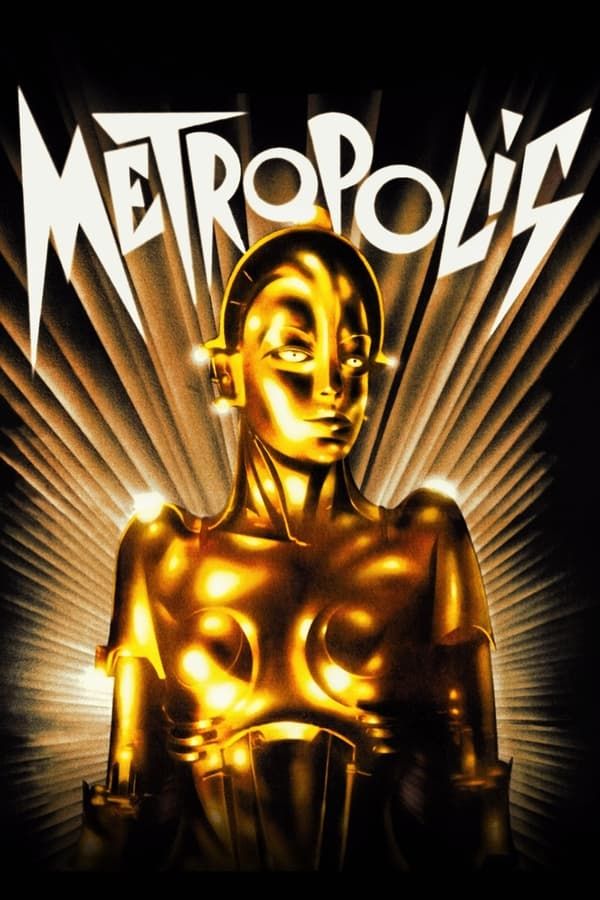
- Release Date
- February 6, 1927
- Director
- Fritz Lang
- Cast
- Alfred Abel , Gustav Fröhlich , Rudolf Klein-Rogge , Fritz Rasp , Theodor Loos , Erwin Biswanger
3 ‘Alien’ (1979)
Directed by Ridley Scott
Included in Ebert’s Great Movie Collection with a four-star review, Alien remains an influential film, but “the films it influenced studied its thrills but not its thinking.” The movie chronicles the terrifying encounter a spacecraft crew endures after waking from their cryo-sleep capsules to investigate an unusual distress signal. Without diminishing the cinematic expertise of the film, Ebert identifies Alien in a similar vein as Halloween and Jaws, as they share the art of pacing and the evolution of a build-up, but when boiled down, are movies about monsters in the darkness.
“One of the great strengths of ‘Alien’ is its pacing. It takes its time. It waits. It allows silences…It suggests the enormity of the crew’s discovery by building up to it with small steps…”
Sigourney Weaver‘s iconic performance as Ellen Ripley created the right action, sci-fi, and horror final girl heroine who favored intelligence, curiosity, and logic over genre tropes added for effect. Alien invites and encapsulates audiences in the claustrophobic quarters of the space shuttle, taking them along on the dark and grotesque exploration of extraterrestrials as they’d never seen before.
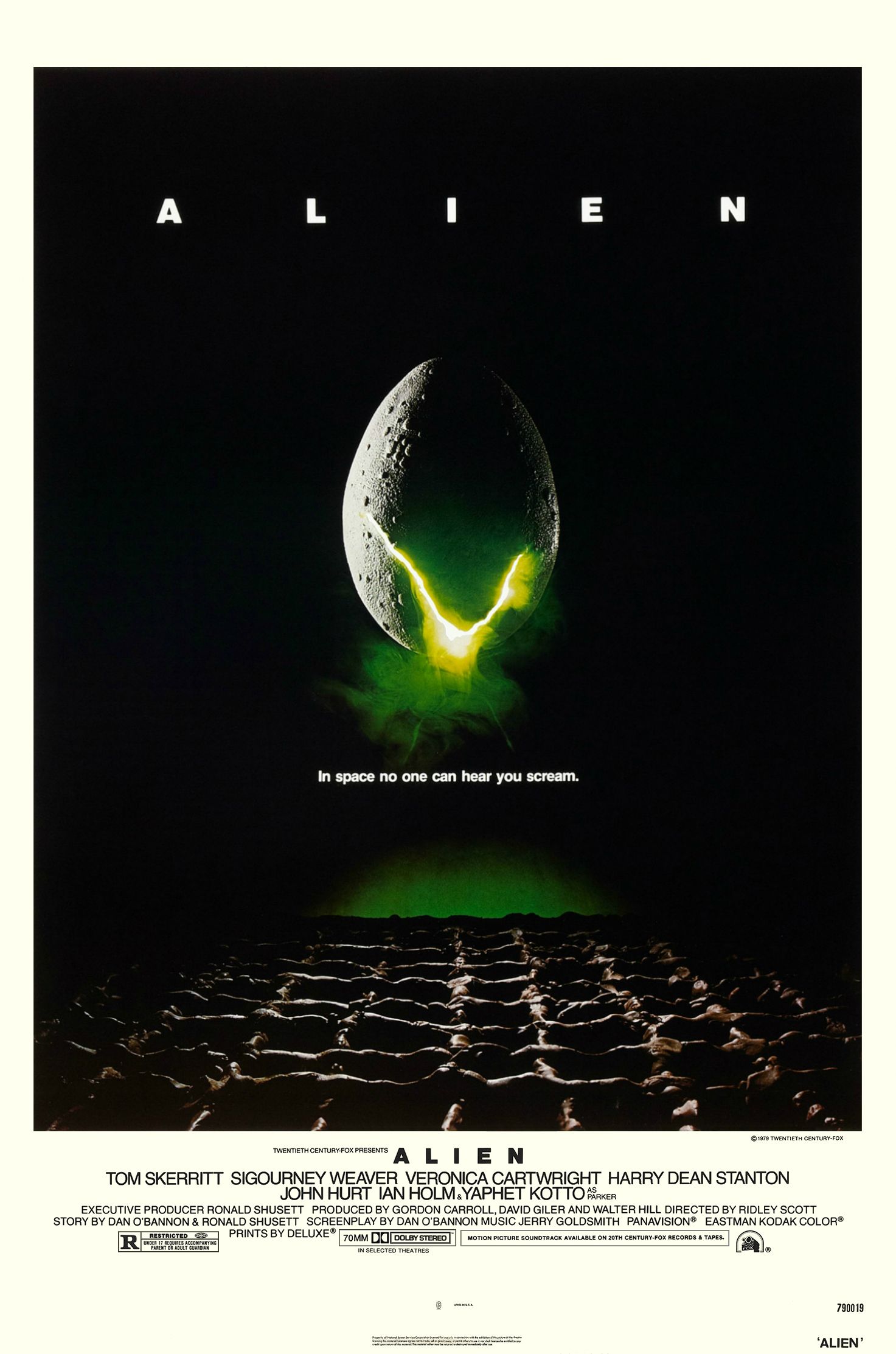
- Release Date
- June 22, 1979
- Main Genre
- Sci-Fi
Watch on Hulu
Directed by Steven Spielberg
The nine-time Oscar-nominated film is a coming-of-age film that allowed the sci-fi genre to reach a younger viewership without sacrificing the genre standards to do so. E.T. The Extra-Terrestrial is the tale of a young boy named Elliot (Henry Thomas) who befriends a friendly alien and forges a plan to help him return to his home planet before the government can take him. In his four-star review,Ebert called the film “a narrative accomplishment” as it protects the purity of friendship within the sci-fi bounds of government agencies, other-worldly lifeforms, and telepathy.
“The E.T. is a triumph of special effects, certainly; the craftsmen who made this little being have extended the boundaries of their art. But it’s also a triumph of imagination, because the filmmakers had to imagine E.T., had to see through its eyes, hear with its ears, and experience this world of ours through its utterly alien experience in order to make a creature so absolutely convincing.”
While it’s a cinematic feat, E.T. remained sentimental for Ebert with his second review for the Great Movie Collection being a letter to his grandchildren the first time they screened the film together. When his seven-year-old granddaughter, Raven, asked an innocent question about the camera movement and E.T.’s vision, Ebert realized with pride that she’d called out the importance of perspective in the film. Almost every shot is from Elliott’s or E.T’s point of view. This familial viewing solidified for Ebert just how well Steven Spielberg had crafted the film to reach an audience usually pandered to with no regard for their potential to understand a sci-fi movie.
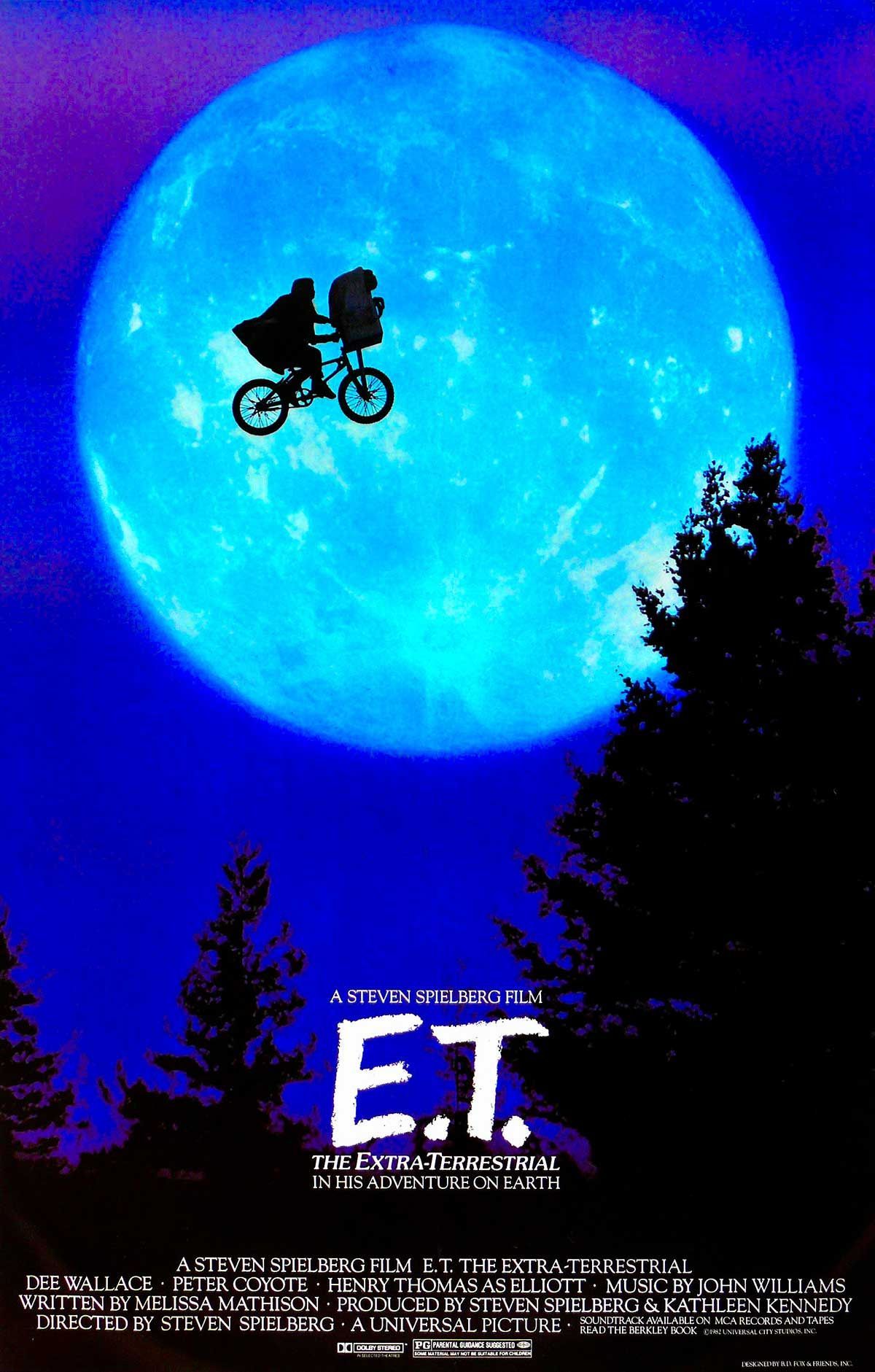
E.T. the Extra-Terrestrial
- Release Date
- June 11, 1982
1 ‘2001: A Space Odyssey’ (1968)
Directed by Stanley Kubrick
Ebert not only listed this film as one of his personal selections for the greatest movies of all time, 2001: A Space Odyssey is considered his choice for the best sci-fi film. Director Stanley Kubrick takes audiences through space and time as a spaceship, operated by two men and an AI computer named H.A.L 9000, is sent to Jupiter to understand a mysterious artifact. Ebert’s four-star review raves about Kubrick’s ability to create a thought-provoking, transformative piece while letting the film do the work, leaving out the thrills and theatrics of the genre.
“What he had actually done was make a philosophical statement about man’s place in the universe, using images as those before him had used words, music or prayer. And he had made it in a way that invited us to contemplate it — not to experience it vicariously as entertainment, as we might in a good conventional science-fiction film, but to stand outside it as a philosopher might, and think about it.”
2001: A Space Odyssey is an Oscar-winning technical feat while maintaining the most minimal effort to get in the way of the audience’s interpretation. Ebert called it “transcendent” and “meditative” with the sole purpose of inspiring viewers to think beyond the genre and beyond the concept of a film where there’s a goal to be reached. The movie is more than that, but is rather a contemplation of humanity’s understanding of intelligence.
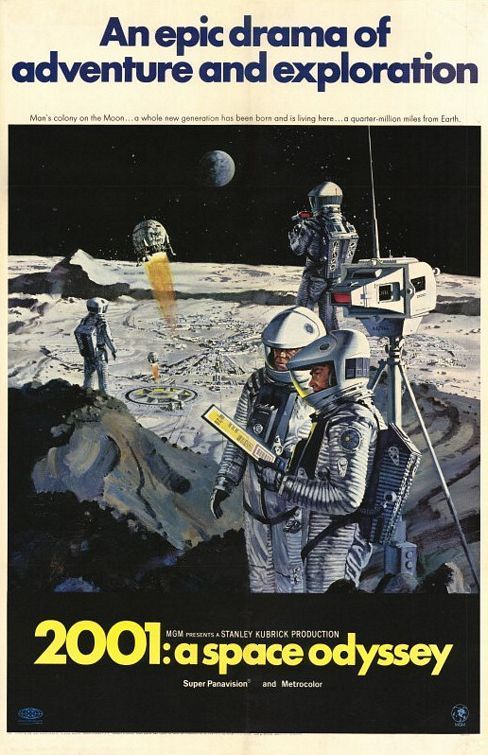
- Release Date
- April 3, 1968
- Director
- Stanley Kubrick
- Cast
- Keir Dullea , Gary Lockwood , William Sylvester , Daniel Richter , Leonard Rossiter , Margaret Tyzack
Source link
